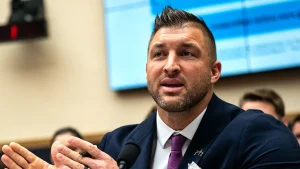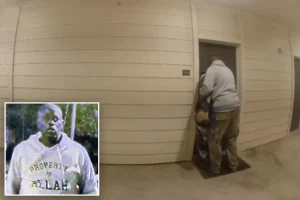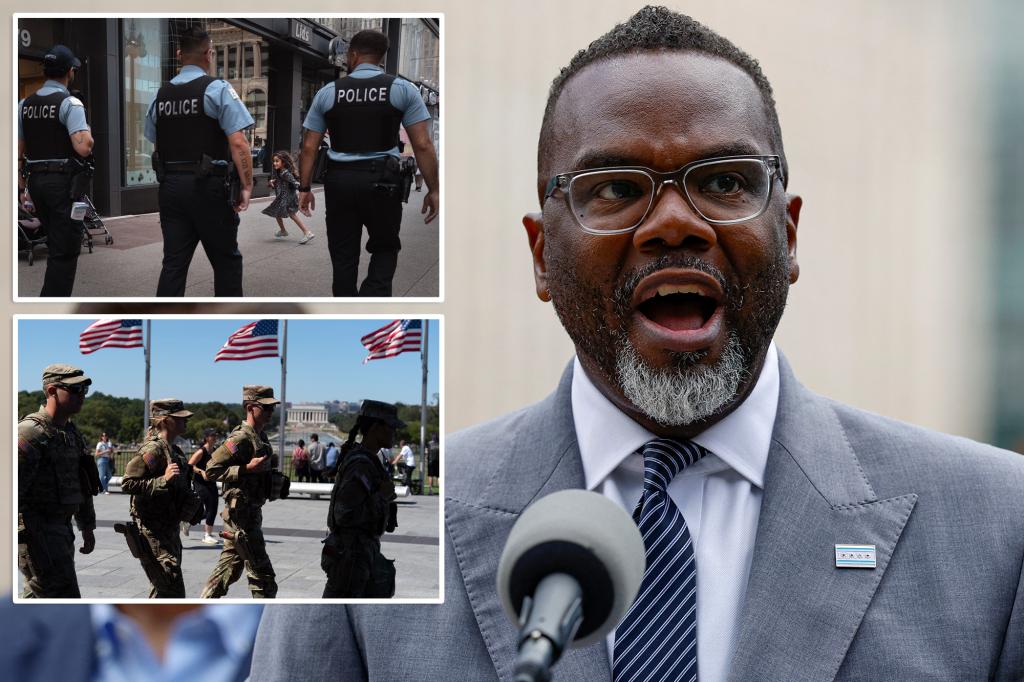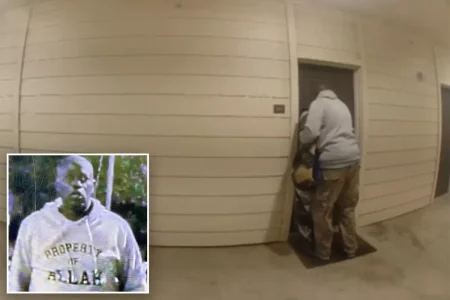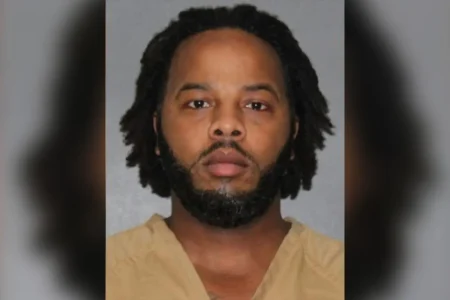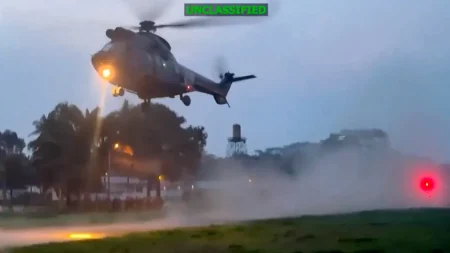Chicago Mayor Stands Firm Against Federal Immigration Raids
In a bold move that underscores the growing tension between local governance and federal immigration policies, Chicago Mayor Brandon Johnson has taken a definitive stance against potential federal immigration raids in his city. Through an executive order signed this past Saturday, Johnson has directed the Chicago Police Department to refrain from cooperating with federal agents or military troops, including the National Guard, in any immigration enforcement activities. This action comes as President Trump has indicated plans to send federal forces to Chicago following similar deployments in Washington, DC.
The atmosphere at Johnson’s press conference was one of urgency and resolve. Surrounded by city leaders who share his concerns, the Democratic mayor explained that credible intelligence suggested federal action was imminent—a matter of days rather than weeks. “We do not have the luxury of time,” Johnson stated firmly, his voice reflecting the gravity of the situation. While the exact nature of the anticipated federal presence remains unclear, Johnson characterized it as potentially “militarized activity” and framed his executive order as a necessary response to what he termed “tyranny.” The order serves as both a practical guide for city employees and a symbolic statement of Chicago’s values regarding immigration enforcement.
Johnson’s directive contains specific requirements designed to distinguish Chicago police officers from federal agents. Local officers must remain in uniform, clearly identify themselves, follow established body camera protocols, and notably, avoid wearing face masks—a practice that has become controversial in some law enforcement operations. By contrast, the order “urges” federal agents to follow these same transparency practices, though it lacks the authority to mandate such behavior from federal personnel. The mayor’s message to the Trump administration was unambiguous: “stand down” from deploying military forces to Chicago. Johnson also made it clear that the city is prepared to pursue legal remedies if necessary, stating, “We will use the courts if that’s necessary.”
The standoff between Chicago and the federal government reflects a broader national debate about immigration enforcement and the role of “sanctuary cities.” Trump has previously singled out Chicago as a target for federal intervention, suggesting it would be “next” after the recent deployment of Department of Homeland Security agents and National Guard troops to Washington, DC. Tom Homan, Trump’s Border Czar, has expanded this threat to include other sanctuary cities such as New York, Los Angeles, Portland, and Seattle. These cities, like Chicago, have policies limiting local cooperation with federal immigration enforcement—policies their leaders defend as necessary to maintain community trust and ensure public safety for all residents, regardless of immigration status.
The White House response to Johnson’s executive order was swift and dismissive. In a statement, White House spokeswoman Abigail Jackson characterized the mayor’s action as a “publicity stunt” that diverts attention from addressing crime in Chicago. “If these Democrats focused on fixing crime in their own cities instead of doing publicity stunts to criticize the President, their communities would be much safer,” Jackson stated. The administration’s position reflects its consistent message that sanctuary city policies compromise public safety rather than enhance it—a view hotly contested by many urban leaders across the country who see community trust as essential to effective policing.
At its core, this conflict represents fundamentally different approaches to public safety and immigration. The federal government, under Trump’s direction, has embraced aggressive immigration enforcement as a crime-fighting strategy, while cities like Chicago maintain that involving local police in immigration matters undermines community relationships essential for effective law enforcement. Johnson’s executive order embodies this philosophy by creating a clear separation between local police functions and federal immigration enforcement. As the situation develops in the coming days, Chicago stands as a test case for how these competing visions of public safety will interact—and whether local government authority can effectively limit federal immigration operations within city boundaries.
The unfolding situation in Chicago highlights the complex interplay between federal authority and local governance that has characterized American federalism throughout its history. As Mayor Johnson prepares his city for potential federal intervention, communities across the nation are watching closely, recognizing that the outcome may set precedents for similar conflicts in other cities. With Johnson declaring his readiness to challenge federal actions in court if necessary, and the White House dismissing his concerns as partisan posturing, the stage is set for a significant confrontation over the boundaries of immigration enforcement authority. “Cracking down on crime should not be a partisan issue,” stated the White House—a sentiment that both sides would likely agree with, even as they fundamentally disagree about how best to achieve that goal.
